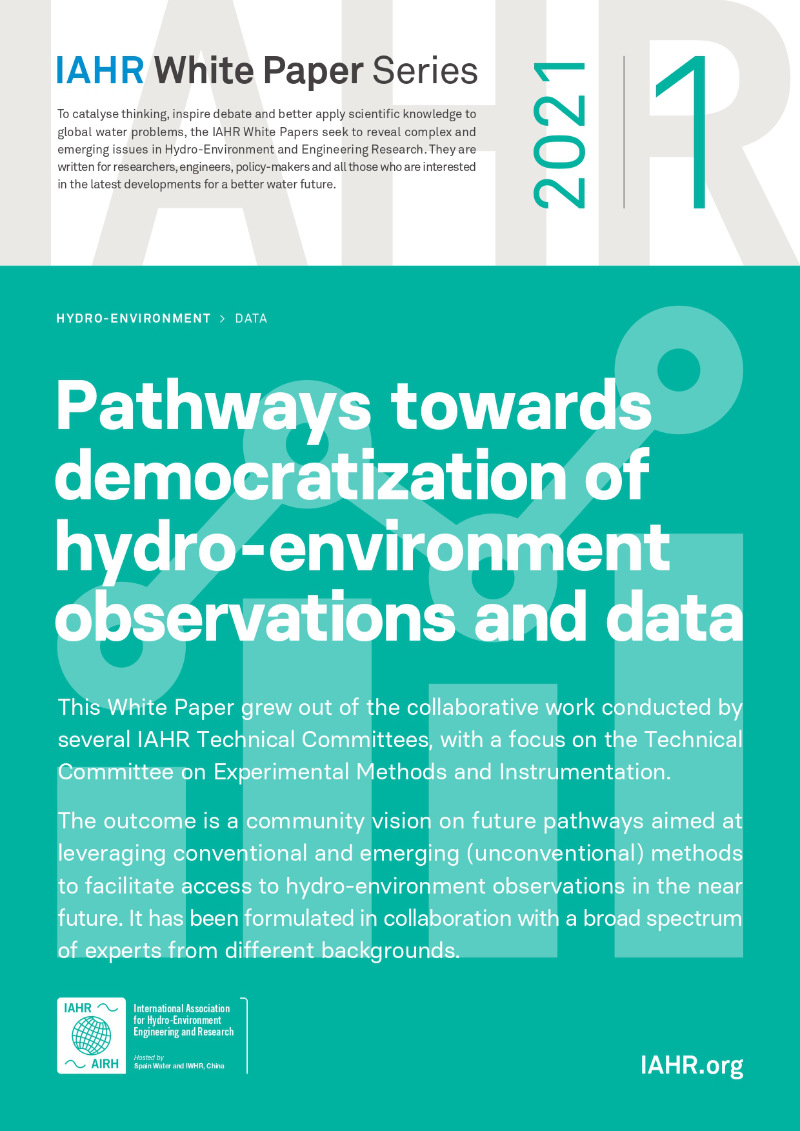IAHR White Paper Series
The White Paper Series published by the International Association for Hydro-Environment Engineering and Research (IAHR) contribute to the democratization of hydro-environment observation and data. Among the experts and co-authors of the publication there is Dr. Michael Nones, Assistant Professor at the Institute of Geophysics of the Polish Academy of Sciences.
Water-related problems affect several billion people’s lives and represent a multi-billion dollar challenge every year, we read in 2019 World Economic Forum Report. Preventing direct and indirect impacts associated with water excess or water scarcity requires expert judgement based on reliable information. Therefore, observations and measurements are necessary for making scientific progress. The current policy trend towards open science (open-data repositories, open-software communities and publicly available publications), is an opportunity for data democratization. However, it must be sustained by trusted scientists (capable of interpreting the data and aware of their limitations) to become a real instrument of progress towards common access.
In the new IAHR White Papers, a group of experts from different professional backgrounds, including Asst. Prof. Michael Nones from the Department of Hydrology and Hydrodynamics of the PAS Institute of Geophysics, presents a common position on the use of conventional and emerging methods to facilitate access to the hydro-environment observations.
“We understand the democratization of observations and data as gaining universal access to research data by scientific community, interested parties and the general public. One such example is the increasing use of citizen science to monitor water risks, and the increasing availability of high-resolution satellite data (free imagery). In near real-time, they provide us with information that can be used in river management or flood emergency response ”, emphasizes Asst. Prof. Michael Nones. The PAS researcher gives also attention to the huge role of communication (data exchange and acquisition), treating it as a challenge. To quote the IAHR White Paper: “Communication and collaborative processes are essential among researchers, but they should also involve the stakeholders of any shared data. Communication across disciplines and communities is essential to progress the science (…) and it may be strengthened by adapting the language to a non-specialized audience.”
About IAHR
Founded in 1935, the International Association for Hydro-Environment Engineering and Research (IAHR), is a global, independent organization of engineers and specialists working in the fields of hydro-environmental sciences. Its activities range from river and maritime hydraulics, water resources development and ecohydraulics, through ice engineering, hydro-informatics, flood risk management, including education and training. The IAHR association promotes both research and its application, and thus strives to contribute to sustainable development, optimization of world water resources management and industrial flow processes.

